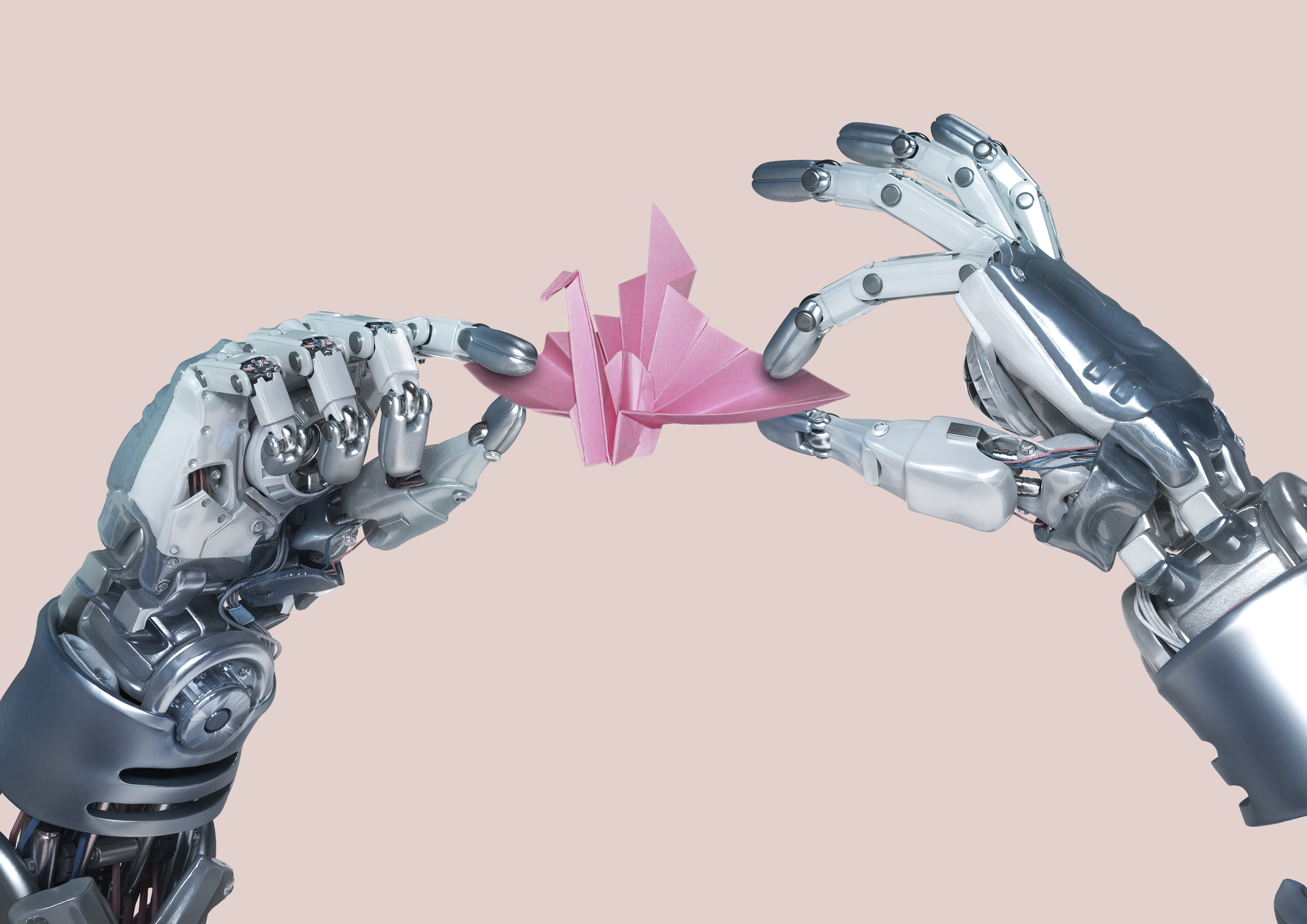As Artificial Intelligence is set to spread into our workplaces, many of us are left wondering what the machine influx will mean for our industries and, perhaps, our jobs.
The much anticipated book by Kai-Fu Lee, AI Superpowers: China, Silicon Valley, and the New World Order comes out next week — as does the entirety of Thrive Global’s original video series with Lee in which he shares his theories (and warnings) about the future of the workplace. The former president of Google China, Lee is a major thought leader, expert, and investor in the field of Artificial Intelligence. And his insights on the ways technology will change how we work predict nothing short of a revolution.
The Future of Jobs 2018 report, released Monday, backs up Lee’s predictions: it forecasts that by 2025, more than half of all current workplace tasks will be performed by machines. That’s up from 29 percent today.
But Lee has some exciting news for those of us wondering what this means for our industries and our jobs. There are two important qualities that machines won’t be replacing anytime soon: creativity and compassion.
Because of this, certain professions probably won’t see much change as a direct result of machine job replacement — “scientists, storytellers, artists, and so on,” Lee said in an interview with Recode’s Kara Swisher — although AI will surely seep into the way these professions are practiced.
Plenty of other jobs, however, will see more drastic shifts towards uniquely human qualities — shifts that will likely call for serious reprioritization in the workplace.
A profession Lee focuses on as an example is teaching: A lot of what teachers do, he says, is routine. “So grading homework, grading exams, giving us exams, giving the same lecture again and again. Those can be done by AI,” Lee told Recode. But this doesn’t mean teachers will disappear. It means they will likely focus on one-on-one training and mentorship, on the human aspect of teaching that requires the sensitivity of compassion and the flexibility of creativity, he explains.
Envisioning this new professional landscape is an exciting opportunity to connect with our own humanity and the humanity of others. It proposes a world in which the kinds of things that allow us to thrive — community, inspiration, variety — will be prioritized in our work.
This potential for a working world in which it’s easier to find fulfillment doesn’t negate the hardship many individuals will face as the jobs they work hard in are eliminated. Education, cultural priorities, and training systems will have to catch up with the AI revolution.
But for those of us thinking about it now, we have a few suggestions for cultivating the compassion and creativity Lee says will continue to be so crucial.
Read more fiction
Studies show that reading a novel can help increase both compassion and creativity. The science shows that our brains process the experiences of characters in a novel the same way they process living through those experiences — and while a lot of the research focuses on the short term manifestations of this process, research also suggest the effects are long lasting. This means that you are literally stepping into someone’s shoes when you read, and then carrying that experience with you afterwards, learning empathy. The connections our minds make as we process language and story, too, are deeply creative. And, when you pick the right book, reading is incredibly fun (and mind-expanding.)
Journal
By helping you process and find meaning in the madness of daily life, journaling is a great way to develop the ability to make creative connections and think outside of routine. It doesn’t need to be the sometimes tedious itemization of summer camp journaling. Even just writing down a few thoughts or observations every day can help. Use your iphone notes or, better yet, get a small notebook you can carry around in your bag, and jot down some thoughts throughout the day. You’ll be surprised at what comes out.
Listen — really listen — to the people you love
Spending time with your loved ones is important not just to remind you that you are connected and loved, but also to help you exercise compassion. Truly listen when your friends or loved ones are telling you about work and relationship trouble — or work and relationship joy! When we pay attention to what they say, we learn about human experience outside ourselves, practice empathy, and cultivate compassion.
Pick up a creative, social hobby
Joining a club or social group centered around a creative activity is a great way to cultivate compassion — by interacting with people you might not otherwise — and creativity, by keeping you accountable about your creative practice. This could be something like a reading or writing group, an evening painting class at a local art school. It doesn’t have to be something you’re great at, but it should be something you enjoy that takes you out of your daily routine.


